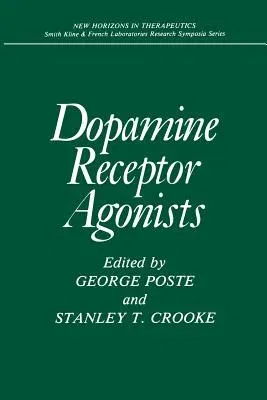George Poste
(Author)Dopamine Receptor Agonists (Softcover Reprint of the Original 1st 1984)Paperback - Softcover Reprint of the Original 1st 1984, 28 December 2012

Qty
1
Turbo
Ships in 2 - 3 days
In Stock
Free Delivery
Cash on Delivery
15 Days
Free Returns
Secure Checkout
Part of Series
New Horizons in Therapeutics
Print Length
388 pages
Language
English
Publisher
Springer
Date Published
28 Dec 2012
ISBN-10
1475703120
ISBN-13
9781475703122
Description
Product Details
Authors:
Book Edition:
Softcover Reprint of the Original 1st 1984
Book Format:
Paperback
Country of Origin:
NL
Date Published:
28 December 2012
Dimensions:
22.86 x
15.24 x
2.16 cm
ISBN-10:
1475703120
ISBN-13:
9781475703122
Language:
English
Location:
New York, NY
Pages:
388
Publisher:
Series:
Weight:
553.38 gm

